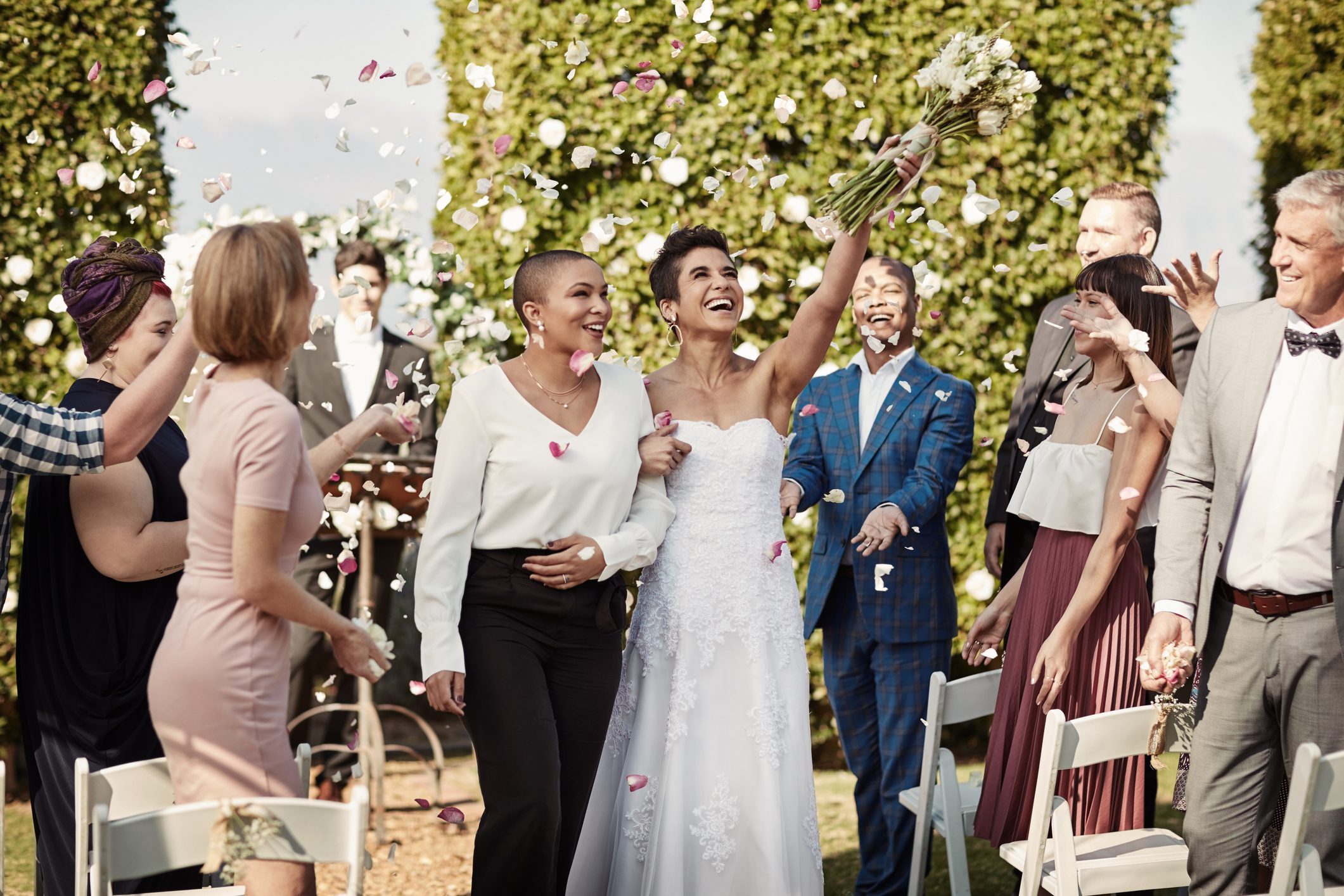Knowing proper wedding etiquette will ensure you’re not “that” guest
15 Wedding Etiquette Rules All Guests Should Follow

Return your RSVP on time
Not RSVP’ing is one of the biggest wedding etiquette mistakes you can make. Couples base the entire day (and budget!) on their guest count, so it really is unacceptable to turn up without notice, says Ivy Jacobson, a writer and strategist who previously worked as a wedding planning and bridal fashion expert for The Knot. Completely fill out and promptly return your RSVP—digitally or through the mail, per the instructions provided by the couple. For a special touch, add a sweet little wedding wish if you’d like.

Bring a “plus one” only if the invitation allows it
“Weddings are expensive. Only those whose names are on the envelope are invited,” says Terrica Skaggs, chief planner and designer at Cocktails & Details, which creates destination Southern weddings. She advises guests to study their invitation carefully. If the invitation isn’t specifically addressed to you and a guest, plan on attending solo. Under no circumstances should you write in an extra “line” on your RSVP card to add a date or kids.
And let’s talk about kids for a minute. Every wedding is different when it comes to preferences about children, but usually the invitation will say if your children are invited. If there is no information about children or the details aren’t specified, reach out to the couple at least a month in advance to ask about age limits, what parts of the wedding they prefer kids to come to and if any accommodations (like an on-site sitter or nursing room) are available. Proper wedding etiquette means not bringing children of any age to an adults-only wedding unless you have explicit permission from the bride and groom.
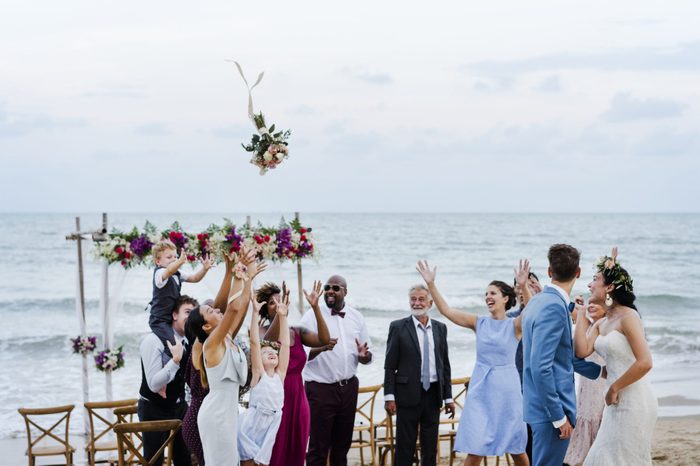
Honor your RSVP
Unless you are at death’s door (or super contagious), once you commit, you have to show up, says Parker. It’s also bad wedding etiquette to try to change a “no” to a “yes” and show up at the last minute or to bring along anyone who wasn’t on the RSVP card.
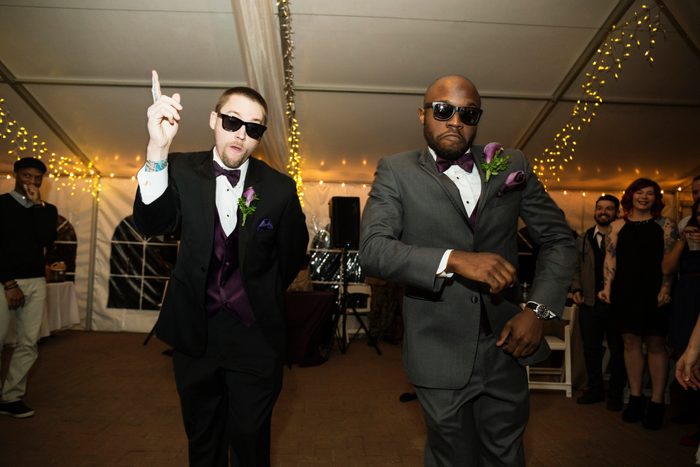
Stick to the dress code
Not all weddings have a dress code, and there’s a huge variety of wedding guest attire out there, but if the couple does note the dress code, follow it. “The important thing is to match the tone to avoid calling undue attention to oneself,” says Parker. “It’s a common mistake to be too extravagant or over-the-top for a casual wedding or to dress too casually at a highly formal wedding.” Here are a few points to keep in mind, according to Parker and Gladstone.
- Unless you are specifically told to, women should never wear white, no matter what your dress looks like.
- To be safe, you should also avoid wearing white to bridal showers, engagement parties, bachelorette parties, dress-shopping outings, rehearsal dinners and bridesmaid brunches.
- Wear appropriate footwear for beach and outdoor weddings.
- Jeans are never appropriate for either gender, unless it is specifically written on the invitation card.
- Dress respectfully for the setting—especially if the wedding is being held at a religious venue that may have its own dress codes.

Give an appropriate gift
It’s poor wedding etiquette for a couple to demand gifts, but it is still expected that guests will bring a wedding gift when attending, unless the couple has specifically asked them not to. Here are some guidelines for giving an appropriate wedding gift, according to Parker.
- Choose something thoughtful and unique but not highly personal. (Not sure what that is? Check the couple’s registry.)
- Gifts should be for the couple and not for the individual you associate with.
- Gifts should be sent before the wedding or shortly after.
- For destination weddings, the gifts should be sent before the wedding, to their home, so the new couple doesn’t have to worry about transporting everything back.
- There is no minimum or maximum dollar amount to spend, but this is a time to be generous; consider what you can personally afford, as well as your relationship with the couple.
- Making a donation in their name, to a charity the couple favors, is a good gift if the couple has indicated they would like this; otherwise, don’t go this route.
- Cash gifts used to be seen as gauche, but these days, cash is welcomed and often preferred.
- Do not give highly personal or intimate items, gifts intended to address a lack of skill (like a cookbook or weight-loss gadget) or anything offensive.
- Do not regift.
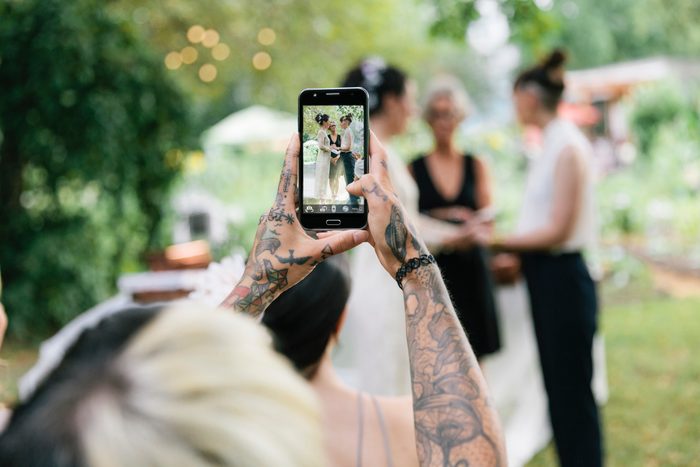
Don’t take pictures of the ceremony with your phone
The couple has likely hired a photographer and/or videographer to document their day, and this is one thing you want to leave to the pros, says Parker. Trying to snap your own pictures or videos—particularly of critical moments, like the first kiss or the cake cutting—can ruin the shot for the pros, as well as ruin the view for other guests. Plus, it may mean the couple won’t get the wedding pictures they really want.
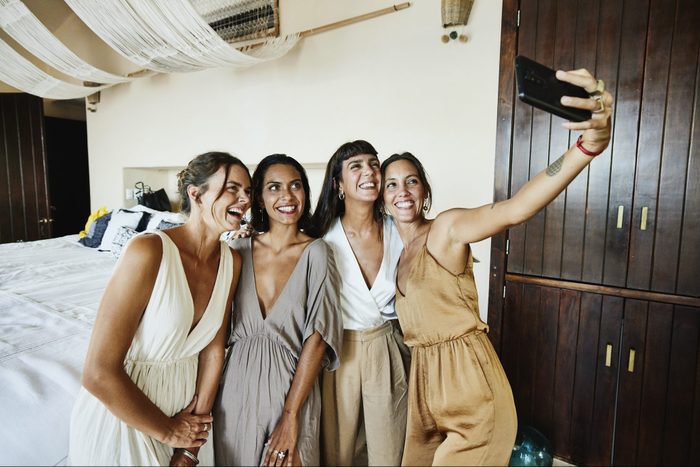
Be respectful when taking personal pics
Unless you’re told that no pictures are allowed, it’s generally fine to take some personal pictures on your phone during non-formal parts of the wedding, like the reception afterward, says Parker. Just make sure the professional photographer isn’t going for the same shot and you’re not in the way. And certainly don’t kneel in the aisle, push to the front or otherwise impede the wedding or celebration to get a picture.
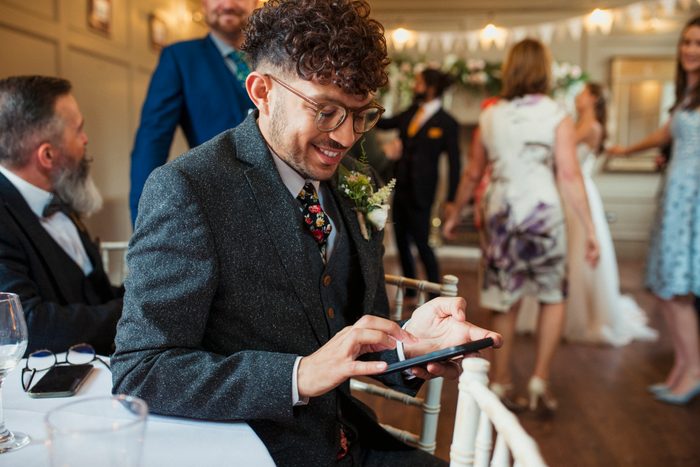
Follow social media rules
When it comes to wedding etiquette, social media is a factor many may overlook. But take note: Unless the couple specifically asks guests to post pictures to social media or their wedding site, do not post any photos from a wedding on social media until after the couple does, says Parker. And do not livestream the event under any circumstances. Also, make sure to follow any other social media guidelines the couple may have, such as using a specific hashtag, tagging the bride and groom, or not posting the location. Wedding etiquette goes both ways, of course, and the couple themselves should follow these rules to make sure the day is a pleasant experience for their guests too.
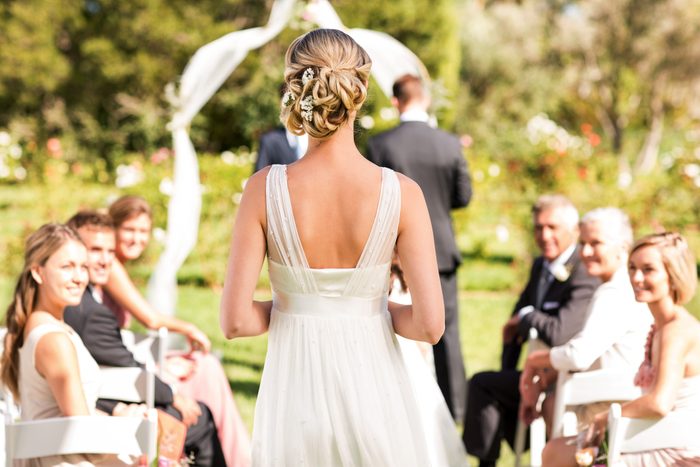
Keep negative opinions to yourself
You’re not going to be wild about every wedding you attend, but complaining to other guests or the couple is a huge breach of wedding etiquette, says Parker. While this is true for any event, it’s particularly important to be respectful of the couple’s choices at something as personal as their wedding. So whether it’s something small like a flower choice, bridesmaids dresses or the garter belt tradition, or something bigger like a same-sex ceremony or unconventional vows, keep your thoughts to yourself—in person and online. And no one wants to hear your thoughts about whether the bride should really be wearing white.
If you have a legitimate complaint about something to do with the service, like an issue with the food or venue, talk discreetly to the wedding planner or the on-site manager. Don’t bother the couple or their family, and don’t make a scene, says Parker.
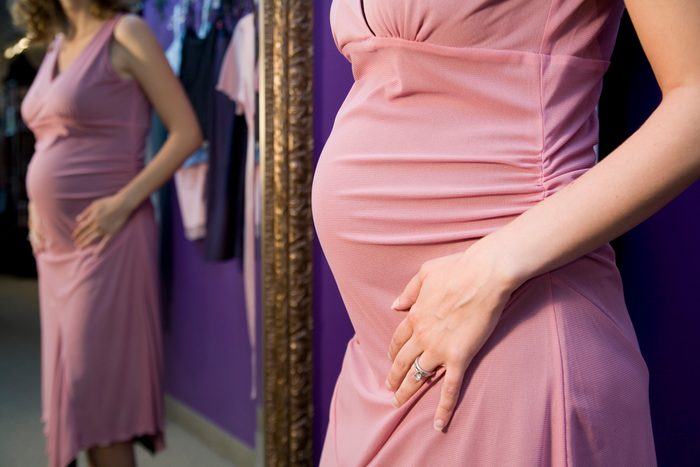
Don’t steal the spotlight
Guests making a huge announcement at someone else’s nuptials is such a breach of wedding etiquette that it’s become meme-worthy. The day should be about celebrating the couple, so skip proposals and announcements of engagements or pregnancies, even if you really think the couple would be OK with it, says Jacobson.
“The big public announcements are often done to compete for views and likes on social media, which makes them doubly problematic,” says Parker. “A wedding is considered one of the biggest events in most people’s lives, so avoid doing anything that will take the focus away from them.”
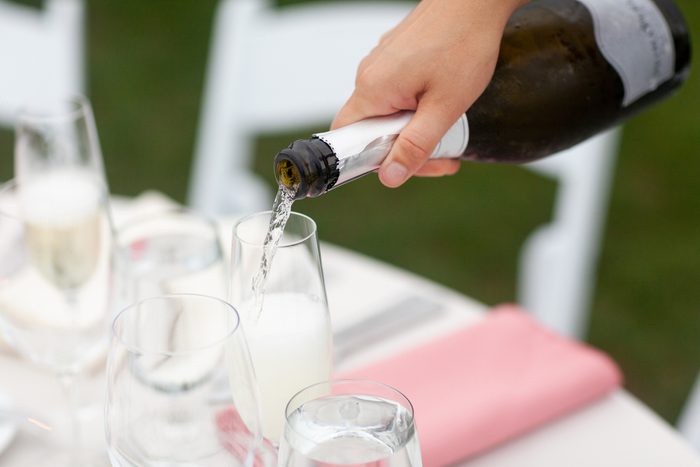
Party responsibly
Everyone wants to have a good time at a wedding, but drinking too much alcohol can lead you to do something you’ll regret once you sober up. “Alcohol often brings out the worst in people,” says Parker. “A guest getting extremely drunk can even ruin the wedding by causing damage, becoming violent, getting law enforcement involved or upsetting the couple when they have many other things to think about.”
Her advice: Know your limits, and don’t drink to get drunk. If you plan on drinking, arrange in advance for a ride home or book a room at the venue to stay overnight. And while we’re on the topic, do not bring your own alcohol or drugs.
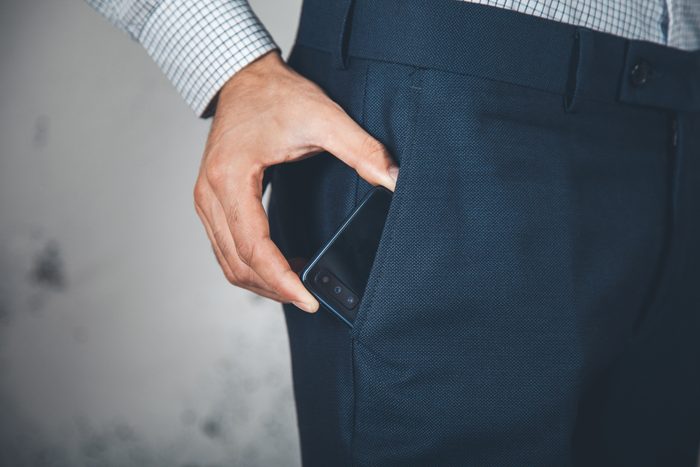
Mute and put away your phone
We’ve all been at a public event where someone’s phone went off at exactly the wrong time. We’ve also seen people glued to their phones during events and ceremonies. When it comes to wedding etiquette and table manners, don’t be that guest. Before the ceremony starts, mute your phone or turn it off, and stow it out of sight in your purse or pocket. This allows the couple peace and privacy and allows you to fully enjoy the moment with them, says Parker.
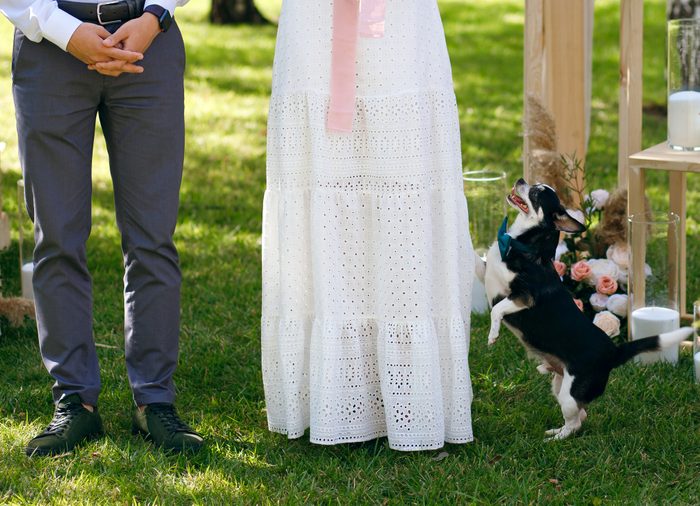
Don’t distract the wedding’s participants
More and more couples are choosing to involve small children and/or pets in their ceremony in unconventional ways—like making the dog a “flower girl” or having a child pull a younger sibling in a wagon down the aisle. Tempting as it may be to pet, touch, talk to or photograph the cuteness, resist the urge to do so, says Parker, since this could disrupt the very carefully orchestrated procedures. It’s also inappropriate to yell things, play pranks, have loud (or loudly whispered) conversations, or eat or drink during the ceremony. And do not come in late or leave early unless it is a true emergency.
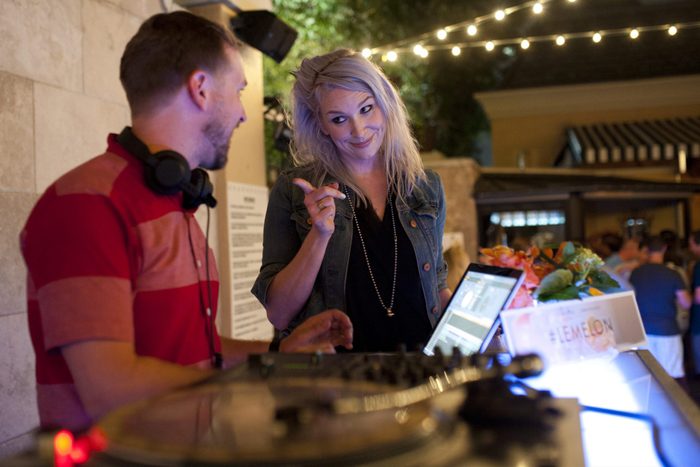
Limit special requests
If you have a genuine need for a special accommodation, like access to disabled parking or a vegan meal, be sure to request it weeks in advance. However, if it’s just something you’d prefer, someone else’s wedding isn’t the time to make it all about you, says Parker. Choices about the playlist, venues, meals and alcohol options have all been planned in detail, and even “simple” requests can cause issues. Some common wedding etiquette mistakes include:
- Asking the DJ to play your wedding song
- Moving tables and chairs outdoors or indoors
- Changing assigned seating arrangements
- Asking the bartender to make you a cocktail that’s not on the menu
- Adjusting decor

Offer to help
Focus on your relationship with the couple, not just the fact that you are a guest expecting a fun party, says Parker. A beautiful gift you can give them is to be helpful in any way they might need. Things can go awry at the last minute, and your offer to run to the store, take a crying baby outside, sew on a button, find a relative or any other small act of kindness can save the day.
Additional reporting by Fiona Tapp.
About the experts
|
Why trust us
Reader’s Digest has published hundreds of etiquette stories that help readers navigate communication in a changing world. We regularly cover topics such as the best messages to send for any occasion, polite habits that aren’t as polite as they seem, email and texting etiquette, business etiquette, tipping etiquette, travel etiquette and more. We’re committed to producing high-quality content by writers with expertise and experience in their field in consultation with relevant, qualified experts. We rely on reputable primary sources, including government and professional organizations and academic institutions as well as our writers’ personal experience where appropriate. For this piece on wedding etiquette, Charlotte Hilton Andersen tapped her experience as a longtime journalist who specializes in etiquette and communication for Reader’s Digest. Then, Laura Windsor, a U.K.-based etiquette expert who was trained by a member of Queen Elizabeth II’s household and now advises international royals, celebrities and regular people, gave it a rigorous review to ensure that all information is accurate and offers the best possible advice to readers. Read more about our team, our contributors and our editorial policies.
Sources:
- Ivy Jacobson, writer, strategist and former wedding planning and bridal fashion expert for The Knot
- Terrica Skaggs, chief planner and designer at Cocktails & Details
- Maryanne Parker, etiquette consultant and founder of Manor of Manners
- Julie Gladstone, CEO of Bride & Groom





















